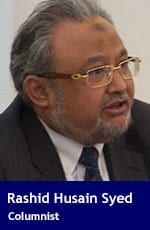Saudi Arabia and Russia playing a high-stakes game when it comes to higher oil prices
 Saudi Arabia and Russia, two major global oil producers and exporters, have announced their plan to expand their additional oil output cut of 1.3 million barrels per day (bpd) until at least the end of this year. This decision has already created waves in the market, with oil prices edging closer to the US$90 per barrel mark.
Saudi Arabia and Russia, two major global oil producers and exporters, have announced their plan to expand their additional oil output cut of 1.3 million barrels per day (bpd) until at least the end of this year. This decision has already created waves in the market, with oil prices edging closer to the US$90 per barrel mark.
Multiple factors are driving this move, including market fundamentals, financial needs, and geopolitical considerations. The global oil demand outlook presents challenges, especially with China, the world’s largest oil importer, undergoing a sluggish post-pandemic recovery. China’s stimulus efforts have fallen short of expectations, resulting in weaker demand within the country. In fact, data released last week showed overall Chinese exports and imports falling in August, as sagging overseas demand and weak consumer spending squeezed businesses.
Other concerns are also emerging. Germany, a significant industrial player in Europe, has passed legislation to phase out oil and natural gas heating systems, potentially reducing future fossil fuel demand. Additionally, global markets are closely monitoring the possibility of interest rate hikes by central banks in the U.S. and Europe to combat inflation. Such rate hikes could further dampen economic growth and reduce oil demand.
All these are a cause of concern for oil producers.
Meanwhile, Saudi Arabia is actively diversifying its investment portfolio to secure future returns beyond the oil sector. The Saudi Public Investment Fund is on a buying spree, indicating a need for petrodollars. Russia, too, relies on higher oil prices to support its ongoing war against Ukraine. Increased oil prices align with the interests of both nations.
However, these major oil producers are wary of market reactions to their output cuts. Brent crude is already trading near its highest level this year, and further price increases could strengthen inflationary trends and reduce global oil consumption, hurting their objectives.
“Riyadh (Saudi Arabia) is acutely aware of the tightrope it walks between tightening the market and upsetting any up-and-until-now progress achieved by central banks in taming price-rise driven inflation,” John Evans of oil broker PVM was quoted as saying by Reuters.
Despite the upward trajectory, some experts, including analysts from JPMorgan Chase & Co., believe that crude oil is unlikely to reach US$100 per barrel this year.
There is a growing murmur in the market that the oil policy of Riyadh and Moscow has geopolitical implications and political connotations too.
The renewed effort by Saudi Arabia and Russia to drive oil prices toward US$100 per barrel also threatens to become another challenge for U.S. President Joe Biden, who has put his record on the U.S. economy and controlling inflation at the centre of his re-election bid.
Higher oil prices and rising gasoline prices could negatively impact his campaign, raising questions about Riyadh’s role in the U.S. presidential election. Some are now saying that poor relations between the Biden administration and the Saudi leadership may also have contributed to the push by Riyadh and Moscow to raise oil prices.
The pain is already plain at the gas stations, said David Sheppard of the Financial Times. Prices have climbed by almost a quarter this year to US$3.80 a gallon. That remains below the record high of more than US$5 reached last summer but is still 60 percent above their level when Biden entered office in January 2021.
Gas prices exceeding US$4 per gallon could prove detrimental to Biden’s campaign, a concern that Riyadh is undoubtedly aware of.
According to Bloomberg’s Ari Natter: “Saudi Arabia’s surprise move to extend its oil production cut couldn’t come at a worse time for President Joe Biden. It threatens to increase gasoline prices just as Biden’s re-election effort shifts into high gear.”
In this high-stakes poker game, Riyadh still holds some interesting cards to play.
Toronto-based Rashid Husain Syed is a highly-regarded analyst specializing in energy and politics, with a particular emphasis on the Middle East. Besides his contributions to both local and international newspapers, Rashid frequently lends his expertise as a speaker at global conferences. His insights on global energy matters have been sought after by organizations such as the Department of Energy in Washington and the International Energy Agency in Paris.
For interview requests, click here.
The opinions expressed by our columnists and contributors are theirs alone and do not inherently or expressly reflect the views of our publication.
© Troy Media
Troy Media is an editorial content provider to media outlets and its own hosted community news outlets across Canada.



